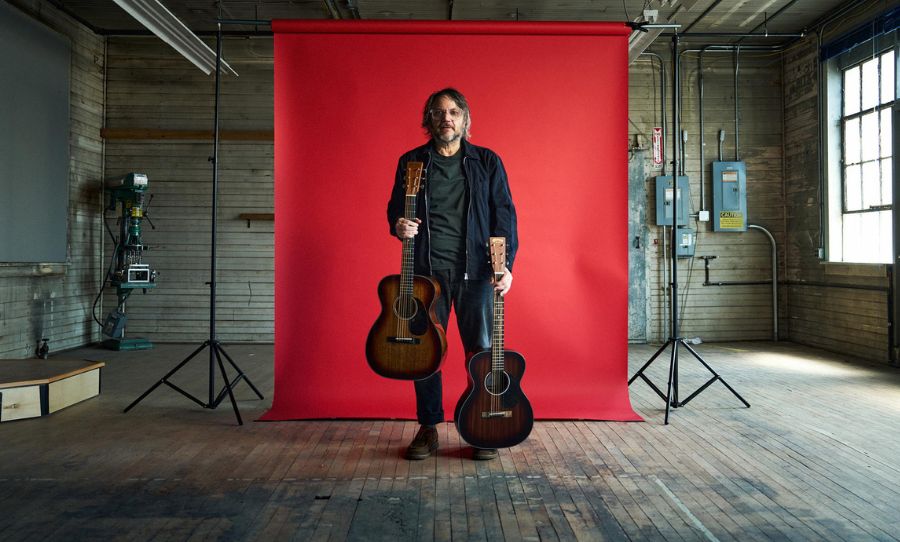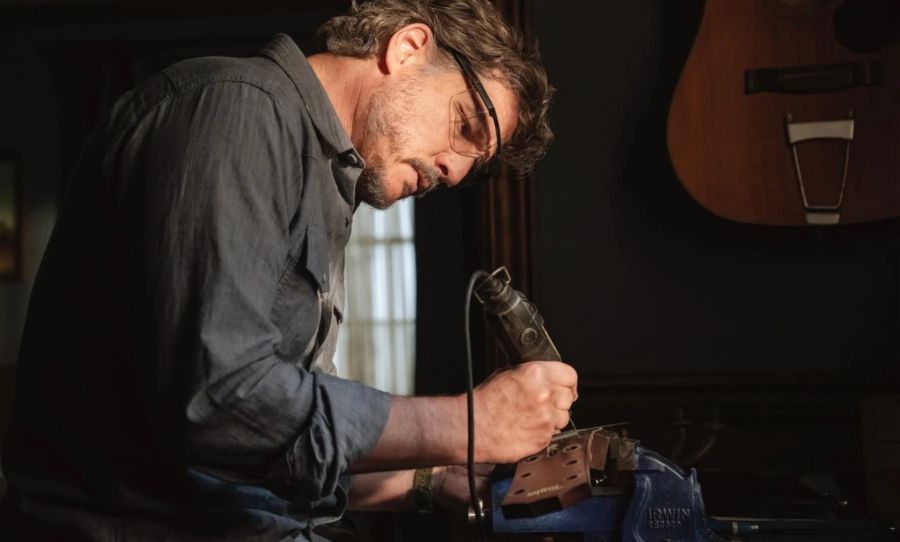C.F. Martin & Co. Guitars is one of the oldest and most ubiquitous guitar producers to ever exist. You can see Martin guitars in the hands of artists like Joni Mitchell, Johnny Cash, Bob Dylan and John Prine, or Kurt Cobain, whose Martin D-18E has recently gone up for sale for the not-so-small price of $1 million.
For the fact that they can be seen everywhere, and most of their guitars are in the upper end of the market, it’s hard to imagine that Martin ever really had to compete. But Martin has a storied past—beginning all the way back in 1833—a history that includes shaping the acoustic guitar more than any other company to date.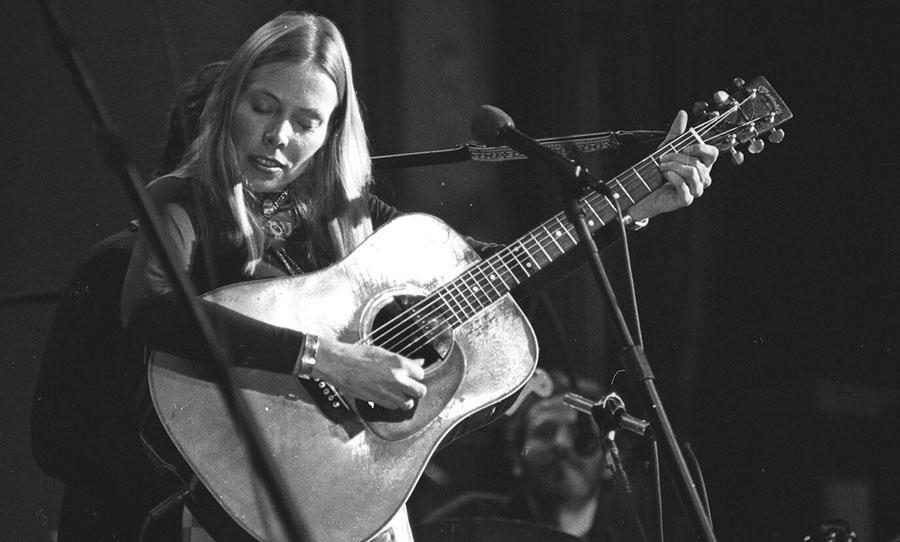
C.F. Martin & Co. have been building guitars since the 1830s. Since then they’ve shaped and innovated the acoustic guitar more than anyone in history.
In the beginning
Christian Frederick Martin was the son of George Martin, a cabinet-maker. That seems to be an unlikely origin, but it’s important to know that many guitar makers of the time were part of what was known as the Cabinet Makers Guild, essentially a trade association.
With cabinet-making and guitar-making being not too different in kind, the young C.F. Martin moved to Germany at the age of 15 to take up an apprenticeship with the guitar and violin maker Johann Georg Stauffer.
Apprenticeship completed, C.F. Martin then decided to relocate and started his own luthiery in Markneukirchen, Germany—a town that is known today for high-quality instruments. Soon after, the Violin Makers Guild entered a dispute with the Cabinet Makers Guild, attacking cabinet-makers as being uncultured and unrefined “mechanics“.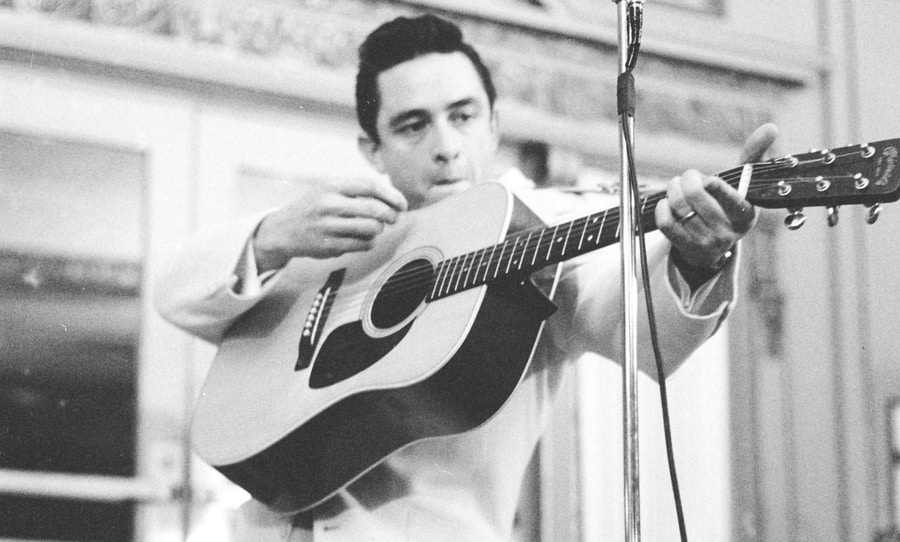
To defend its right to continue producing guitars – which it did successfully – the Cabinet Makers Guild specifically referenced the Martin family, arguing that George was responsible for “the discovery of the guitar” and that C.F, Martin’s work showed enough distinction for Cabinet Makers in the guitar game to be taken seriously.
C.F. Martin’s embroilment in the feud left him disillusioned with the guild system in Germany and as such he left for New York, starting up a small shop on the Lower-West side in which producing guitars was even his main business. Under the recommendation of his wife, in 1838 he sold the store and bought 8-acres in Nazareth, Pennsylvania.
Robbie Robertson of The Band was inspired to write the line “I pulled into Nazareth, was feeling about half-past dead” on their song The Weight by the stamping on the back of his Martin—C.F. Martin & Co., Nazareth PA.
Shaping the acoustic guitar
Rather than the “3+3” layout of tuning pegs that is common in acoustic guitars, Martin in the 1830s used a design with all of the tuning pegs on one side of the headstock, a design that likely followed Stauffer’s acoustic guitar, which was resurrected by Fender’s Telecaster over a century later.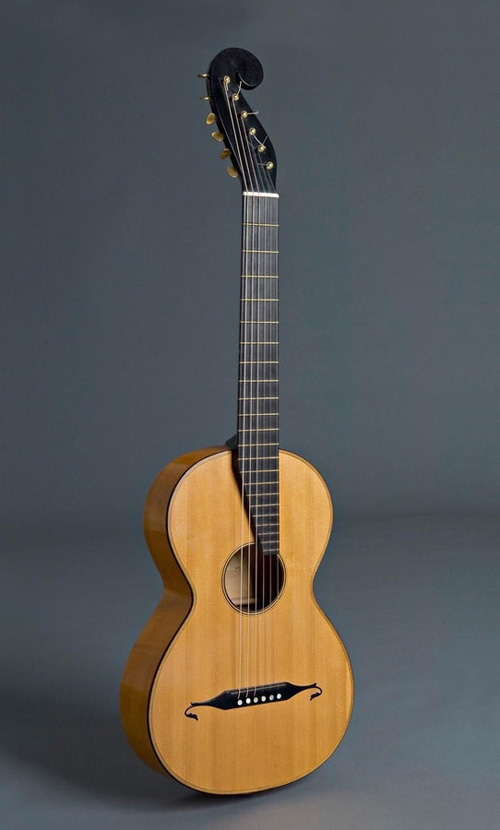
By 1850 C.F. Martin had made one of the key innovations in guitars today in what is known as “X-bracing”, although he never took out a patent on the design, leading some to say he was only the first to use it in large-scale production.
X-bracing helped make acoustic guitars louder, which was increasingly becoming guitar players’ desire. The desire for louder guitars even led to the shift from using gut strings (literally made from the intestines of animals—usually sheep) to steel strings. C.F. Martin is often credited for preparing the guitar for steel strings, as X-bracing offered better reinforcement and tone when using them.
After C.F. Martin’s death in 1888, the company went on to produce the first 14-fret guitar and even invented the popular Dreadnought shape. Named in reference to the American Navy’s new battleship (so big it had “nought to dread”), the Dreadnought shape was significantly larger and therefore louder and bassier. It is still one of the most popular acoustic guitar shapes to date.
21st-century
Quite incredibly, Martin has always remained a family-owned company. Throughout the 20th-century, with much thanks to the post-war boom in the economy, C.F. Martin III and his son Frank Hebert Martin ramped up Martin’s production to become the consumer-friendly product it is today. In the past, ordering a Martin meant waiting for three years.
With business booming, Martin acquired a banjo company, a drum head company and even Darco String Company, known today as D’Addario. Martin even released a run of electric guitars under the name “Stinger” between 1985-1996.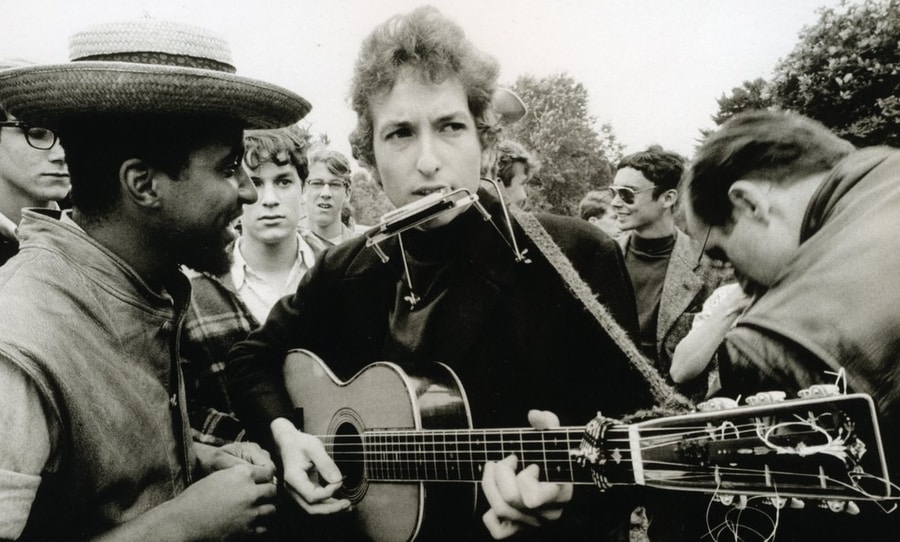
Yet Martin’s modernisation has never interfered with the quality of their service or their products. Martin guitars are still handmade, in what is now a factory with 500 people (and some robots). With the guitar industry facing the depletion of several commonly used wood types, Martin has been proactive in coming up with sustainable development policies and using new alternative woods like Mutenye and Siris.
Martin has always put quality first and doesn’t mind prioritising it over cost. In 1904 Frank Henry Martin wrote that “A good guitar cannot be built for the price of a poor one, but who regrets the extra cost for a good guitar?“.
Quentin Tarantino and his crew found this out the hard way on the set of The Hateful Eight. In the film, Daisy Domergue, played by Jennifer Jason Leigh, plays a vintage 1870 Martin, before John Ruth, played by Kurt Russell smashes it in a fit of rage.
To conduct the scene, Martin had loaned out from its museum both an authentic 1870 guitar and the set had a prop on hand to switch for the destruction. However, somehow Russell wasn’t told, and so the antique Martin, valued at $40,000USD was destroyed—although reportedly Tarantino was pleased with the genuine shock it brought to the scene.
A Martin D-18, a dreadnought and probably Martin’s most sought-after guitar, still retails for over $3000. But these days buyers can also find the Martin Dreadnought Junior, which is in many ways like Taylor’s GS Mini, offering players Martin quality in a smaller (but surprisingly loud!) package.
Although today Martin sells Johnny Cash, Eric Clapton, John Mayer and Ed Sheeran signature guitars, historically Martin never did endorsement deals, opting instead to offer a 20% discount to professional musicians. That the guitars have become so ubiquitous despite this—as previously mentioned, being used by everyone from John Prine to Kurt Cobain—is a testament to C.F. Martin’s excellence.
